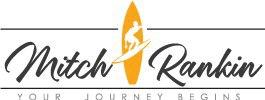More than 100 million students apply to study in the United States every year but how many of them can really give bright inputs to the industries they aspire to join upon their graduation? Are academic institutions the best way to filter the quality of graduates for corporate roles?
The surefire entry into an established corporation is to first get accepted into the so-called “Ivy League” academic institutions. Higher education comes at a steep price as an investment for higher-paying jobs. A graduate student normally takes a US $200,000 loan for pursuing higher education resulting in the estimated student debts exceeding the US $1.3 trillion!
That’s the big picture on the “delimiters” of higher education but for the details, have you ever wondered how difficult it is to get into an Ivy League or other famous universities in the US?
System Status Quo
It’s estimated that more than 100 million people apply for admission to a university in the United States every year. Of these, only 20 million are eligible to gain admission, and the final number of people actually studying is only 2 million.
If you want to study at an Ivy League or other famous universities, you’ll be among 25k or so that gain admission each year.
The final column in the image below from The Ivy Coach ~ 2021 Ivy League Admissions Statistics | Ivy Coach will show you the total applications that are accepted for each university.
Accreditation by Trust
The reason reputable tertiary institutions receive thousands of applications each year is that they have created trust between students applying, companies wanting graduated students to work for them, and the level of education a student will receive at the institution. That is why institutions only accept the brightest and the best applicants, as these students become their ambassadors, and will carry in the institutions’ good name with their future success. It creates a circle of aspiration by creating trust.
Hack-education – the major loophole in the system
The ease with which a person is able to manipulate and falsify their qualifications is astounding. There are documented cases of high-ranking politicians and government officials lying about their tertiary education qualifications, just to gain access into top academic institutions or better-paying jobs.
Top level hackers are capable of breaching record-keeping systems of the institutions and can alter or delete the qualifications of applicants.
These qualifications are difficult for institutions to verify, especially if candidates have received the qualifications from multiple tertiary institutions or online institutions.
Blockchain and ‘Digital Trust’
Blockchain is a vehicle for the exchange of things that have value without the need to have a third party or centralized point of contact to verify that the exchange (a students application credentials and study records) are correct.
This is a huge plus for Blockchain technology as it creates an immediate trust between institutions and applicants, speeds up the application process and cuts down on the costs and man-hours needed to verify the accuracy of a student’s qualification records.
Gatekeeper to accurate record keeping
Blockchain technology has the ability to limit fraud manipulation and hacking. Once information has been entered and verified on the blockchain, it becomes immutable, and cannot be altered. If an applicant wanted to change the data on the blockchain, they would need the consent of the users making it very difficult to alter records.
We often talk about our connected, global village and aspiring students are able to travel to many parts of the world to complete their education. This makes it difficult for institutions to track back the sometimes multiple education points that the student has obtained qualifications from.
Conversely, it’s also difficult for a student to convince an institution that he is a worthy applicant if he doesn’t have access to all of the documentation and records of his qualifications from the centralized institutions where he studied.
All of these factors often result in lengthy delays as verifications can take months to coordinate and verify.
Smart contracts – debt collecting ninjas
Mounting student debt in the US (the latest figure is $1.5 trillion) is leaving institutions with the mammoth task of tracking down outstanding course payments and receiving payments for the education received by the student.
A smart contract gives an institution the ability to record on the blockchain that a student has outstanding debt, and until the debt is repaid in full the student’s qualification certificate does not get issued.
KYL – Know your lecturer
Institutions and companies may pay to buy testimonials and positive reviews from random people to create a peer verification of the course or degree.
Every student wants access to high-quality lecturers and learning material, and the only way to receive accurate opinions is with peer reviews.
These verifications must only come from the actual students that have studied under the lecturers.
Peer reviews are entered into a private blockchain, with access only allowed to the lecturers and students that they have previously taught.
These records can be accurate and up-to-date and give guidance to future students wanting to learn under the lecturer as to the quality of the education they will receive from that person.
Personalized P2P Instruction
Online education is changing rapidly with the traditional version of pre-recorded videos being replaced by a one-on-one tutor system where students can get access to live teachers and information in real time. Choosing the right person as a teacher often is the key ingredient in the speed at which a student will learn and the results he will have.
Blockchain technology has the ability to provide a decentralized education system where there is a real-time exchange of information between teachers and students.
Earn as you learn
Future possibilities allow institutions the ability to link the lecturer’s bonuses back to the earning potential and future impact that their previous students have on the industry as this further enhances the reputation of the institution and build more trust with future applicants.
Teachers would be rewarded with the blockchain protocols native tokens which in turn can be exchanged for FIAT or the tokens on another blockchain network in exchange for other goods and services. Students, in turn, can be rewarded for course progress and completion.
Blockchain, with its promise of decentralization and immutable records, can play an important part in transforming the Education Technology (EdTech) landscape, but we all need to want the transparent, trustless and decentralized system and work towards the betterment of the system.
Disclaimer: This is a guest article. The views, opinions and positions expressed within it are those of the author alone and do not represent those of Cryptopolitan. The accuracy, completeness and validity of any statements made within this article are not guaranteed. We accept no liability for any errors, omissions or representations. The copyright of this content belongs to the author and any liability with regards to infringement of intellectual property rights remains with them.









Leave a Reply